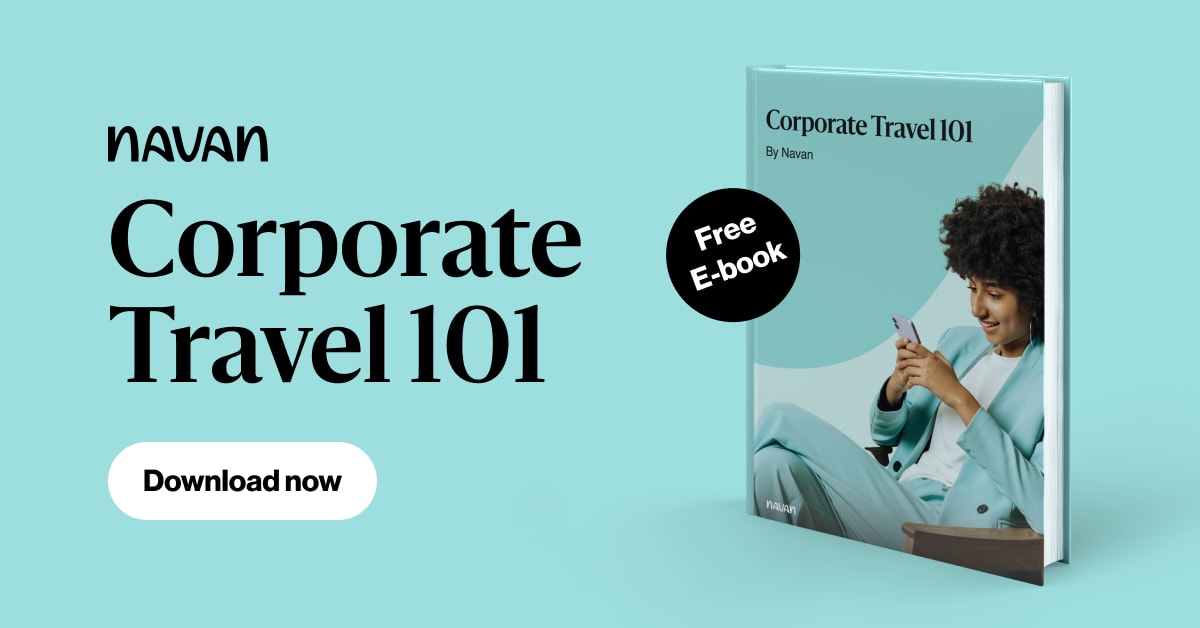How to Develop a Travel Management RFP for Optimal Partnerships

Finding the perfect travel management company (TMC) for your organization starts with a well-crafted request for proposal (RFP) to pinpoint a partner that aligns with your unique needs and objectives. This travel management RFP serves as both a tool for comparing different TMCs and a strategic blueprint for selecting a partner that aligns with your business goals, budget, and technology requirements.
This guide will help corporate travel managers, procurement professionals, and finance leaders create an RFP that reflects their organization’s specific needs and paves the way for a successful partnership.
Assessing Your Organization’s Travel Needs
The first step in developing an RFP document is evaluating your organization’s current travel program. This is crucial for identifying areas for improvement and aligning your RFP with your overall business strategy.
First, take a close look at your travel patterns — frequency, destinations, and volume of bookings. What are your primary travel goals? Is the focus on cost savings, improving traveler satisfaction, or streamlining booking processes? Addressing these questions will help you understand which services and solutions are necessary.
Next, assess your travel budget. Understanding how much you currently spend and where potential cost savings might lie will allow you to frame your RFP around specific financial goals.
Equally important is to identify any pain points in your existing system, such as long approval processes, inefficient booking procedures, or poor data visibility. These insights should be reflected in the RFP so the responses you receive directly address your organization’s distinct challenges.

What to Include in Your Travel Management RFP
A comprehensive travel management RFP should include several key sections that clarify your needs and expectations. By covering all aspects, you can avoid confusion and reduce the risk of misalignment between your company and the chosen TMC.
Company Background
Begin by giving potential bidders an understanding of your company, including its size, global footprint, travel volume, and any unique business requirements. This section helps TMCs assess whether they can provide the appropriate services for your organization.
Desired Services
This section of your RFP should clearly define the specific travel management services your organization requires. Most companies need booking tools, itinerary coordination, risk management, data reporting, and policy enforcement. But to robustly support your travelers and internal teams, it’s recommended to also prioritize services like 24/7 traveler assistance, dedicated account management, and industry-specific expertise.
Many businesses now seek end-to-end solutions like Navan, which combine travel and expense management in a single platform. This helps to eliminate manual workflows and reduces the friction often found in siloed systems.
Travel Inventory and Content Access
Your RFP should clearly state the types of travel content your organization expects from a TMC. This includes broad access to flights, hotels, car rentals, rail, and other suppliers relevant to your business. Ask how the content is sourced and how often it is refreshed, so your team can access competitive pricing and current options. A wide selection helps employees choose bookings that align with both personal preferences and company policies.
Pro Tip: Maximize Travel Options with Multi-Source TMCs
When selecting a TMC, prioritize those that source content from multiple channels, including Global Distribution Systems, online travel agencies, direct connections, and specialized providers. Multi-source TMCs not only provide more comprehensive travel options but also help ensure better pricing through cross-channel comparison and protect against content disruptions that can occur with single-source solutions.
User Experience
A user-focused TMC platform can greatly influence traveler adoption and policy compliance. A clear and easy-to-use interface improves satisfaction, reduces friction, and creates a smoother experience for both employees and administrators. In your RFP, ask for details about the platform’s design, mobile functionality, and ability to support personalized preferences.
Tech Integrations
Technology plays a vital role in modern travel management. The right solution should support booking, policy enforcement, and approval workflows. To maximize your partnership with the TMC, your RFP should outline your integration needs with systems like ERP, HR software, and calendars to maintain efficiency and simplify implementation and ongoing operations.
Cost Structure
The right TMC for your company should help drive travel cost reductions. To support this, your RFP should define expectations for pricing transparency and the types of fees involved, including per-booking fees, service fees, and any additional costs for specialized services. Clear cost structures will make it easier to compare proposals.
Reviewing Potential Travel Management Companies
As you evaluate the responses to your RFP, it’s important to look beyond just the cost. Price should not be the only factor in choosing a TMC. Take time to assess the bidders on a range of criteria crucial to the success of your travel program.
Customer Service
The level of customer service provided by a TMC plays a critical role in keeping operations running smoothly. Assess the TMC’s responsiveness, 24/7 support availability, and the quality of assistance it provides to travelers.
Scalability
Consider whether the TMC can scale its services to accommodate future growth. Will it be able to manage increased travel volumes, additional locations, or changing requirements as your organization evolves?
Reporting and Compliance
A TMC that offers robust reporting tools is invaluable. Look for transparency in how the company tracks travel data, provides insights into spend patterns, and supports compliance with corporate travel policies.
Flexibility
Evaluate how adaptable the TMC is to handling travel disruptions or changes in policy. Flexibility is crucial, especially in today’s fast-paced business environment where changes are frequent. Can the TMC adjust quickly in the event of a crisis or sudden shift in travel patterns?
When Plans Change, Navan Keeps You Moving
Unexpected delays and cancellations due to weather, strikes, or other events are part of business travel. Navan is built to respond quickly and keep travelers moving. With 24/7 access to expert travel agents, support is always available when plans shift.
For those who prefer a self-service approach, Navan’s intuitive platform makes it easy for travelers to change or cancel flights themselves with just a few clicks.
Read more to learn how Navan simplifies travel management, even during disruptions.
Common Pitfalls to Avoid in the RFP Process
While an RFP can provide structure to the decision-making process, it’s important to avoid common pitfalls that can lead to subpar outcomes. Many organizations fall short by not being specific enough in their requirements. Vague descriptions of services or expectations will result in unclear proposals and make it difficult to compare bidders.
Another common mistake is neglecting to define key performance indicators (KPIs). Without clear metrics for success, it becomes challenging to evaluate whether the TMC has met your expectations. It’s also vital to involve all relevant stakeholders in the process. Failing to include departments like finance, HR, or IT can lead to missed requirements or issues down the line.
Lastly, many companies forget to address post-implementation expectations in the RFP. Including expectations for performance reviews, ongoing support, and future upgrades can prevent issues from arising after the partnership is established.
Leveraging Data Analytics in Travel Management
An often-overlooked aspect of the RFP process is the incorporation of data analytics. Today’s TMCs offer a wealth of data that can help organizations gain insights into travel spending, policy compliance, and traveler behavior. When crafting your RFP, be sure to include requirements for robust reporting capabilities and data transparency.
By incorporating data analytics, you gain the ability to track travel patterns, monitor compliance, and identify opportunities for cost savings. The TMC should be able to provide detailed reports on key metrics such as travel expenses, booking trends, and traveler satisfaction — all of which are crucial for optimizing your travel program.
Read more to learn how business travel analytics can improve corporate travel management.
FAQ
Meet Navan
Navan understands the complexities of corporate travel and delivers solutions tailored to the needs of modern organizations. From customizable travel programs and seamless tech integrations to real-time reporting and policy compliance tools, Navan offers a comprehensive platform designed to support both travelers and travel managers.
Conclusion
Crafting an effective travel management RFP is essential to selecting the right TMC for your organization. When your RFP reflects company goals, outlines technology requirements, and defines service expectations, it sets the stage for a successful, long-term partnership.
Ready to transform your travel program? Request a demo and get our free RFP template to get started.
This content is for informational purposes only. It doesn't necessarily reflect the views of Navan and should not be construed as legal, tax, benefits, financial, accounting, or other advice. If you need specific advice for your business, please consult with an expert, as rules and regulations change regularly.


